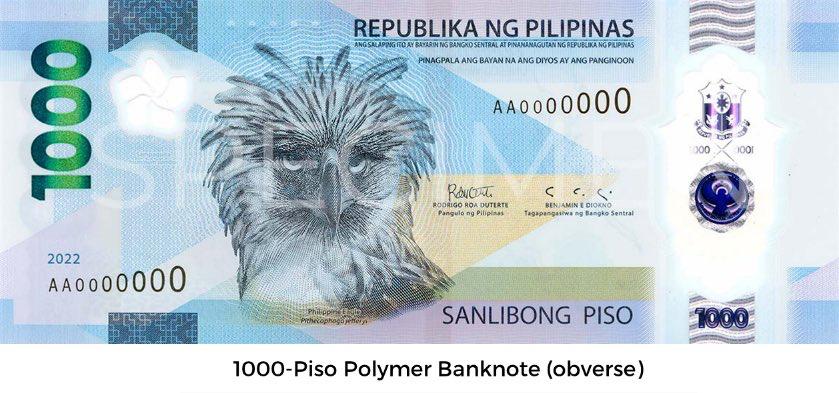Salceda urges BSP to issue guidelines on ‘damaged’ P1,000 polymer bills

The Bangko Sentral ng Pilipinas should issue guidelines on what constitutes a still-valid P1000 polymer bill and which bills are damaged beyond being acceptable, Albay representative Joey Salceda said on Monday.
BSP Governor Felipe Medalla had earlier warned that the new P1,000 bill should remain flat; should not be excessively folded, creased or crumpled as mishandling can result in the bill breaking; and Filipinos would need a longer wallet to store it.
The P1,000 polymer bill replaces the P1,000 banknote which featured the faces of Josefa Llanes Escoda, Vicente Lim and Jose Abad Santos.
“One of the primary motivations for shifting to the polymer-based bill was that it is more durable than the paper bills," wrote Salceda in a letter to the BSP.
"However, the lack of guidelines on what constitutes still-valid legal tender and which bills are damaged beyond being acceptable by business establishments has led to confusion in ordinary cash transactions," added Salceda, who served as the House Ways and Means panel chair in the 18th Congress.
"One folded bill should be just as good as a bill not folded."
The representative reasoned further that if the polymer bills were more sensitive and less flexible than the paper bills, the whole effort defeated its own purpose, which was to make paper bills more durable.
"To resolve these concerns, may I request that the BSP issue guidelines on accepting polymer P1000 bills, and what remedial resources cash-holders can resort to, should their polymer bills no longer be acceptable to establishments. I understand that, with the paper bills at least, damaged bills could still be exchanged with banks and the BSP,” said Salceda.
Furthermore, Salceda pointed out that in theory and in usual practice, the value of money was not affected by its appearance.
"What matters is the validity of the promise embedded in the currency. That should determine the value. Money is fungible, so you should be able to exchange one bill with another and not lose value," Salceda said.
He added that sanctions on those who fold the new P1,000 bill would also be hard to implement because there would be no record of who held which bills.
“I hope Philip [Medalla] directs the issuance of guidelines soon. We are not the only currency using polymer. Australia and Canada also do, and they’re not quite as finicky about the bills," Salceda said.
In addition, the Albay Representative said he had scheduled a meeting with the BSP on the polymerization of other bills, as well as their impact on the abaca sector.
Abaca is used in some paper bills issued by the BSP. — DVM, GMA News



